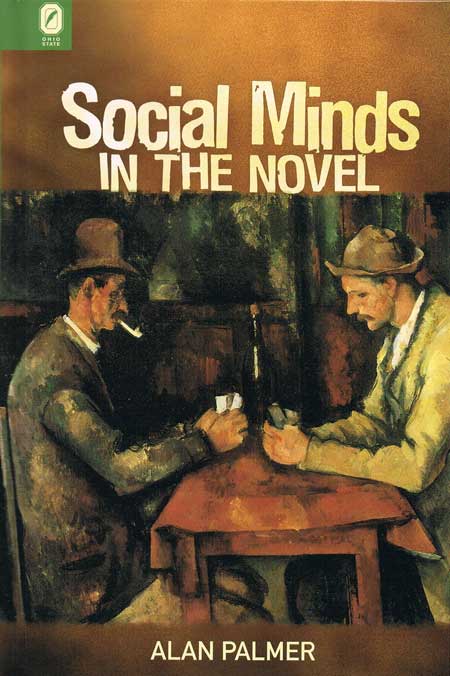Social Minds in the NovelAlan PalmerTheory and Interpretation of Narrative |
 11/17/2010 Literary Criticism/General 220 pp. 6x9  $49.95 cloth 978-0-8142-1141-0 Add cloth to shopping cart Shopping Cart Instructions Review/Change Shopping Cart & Check-out | |||
| Table of Contents |
“Social Minds in the Novel is a must-read for anyone with an interest in the theory of the novel. It is a highly original and important book that should prove influential in the field of narrative theory. Alan Palmer has discovered a fresh new field for study and provides a lucid theoretical model for mapping and discussing it. His readings not only demonstrate the importance of his approach for the study of the novel generally, but break significant new ground in the criticism of three major and much-studied works.” —William Nelles, professor of English, University of Massachusetts Dartmouth Social Minds in the Novel is the highly readable sequel to Alan Palmer’s award-winning and much-acclaimed Fictional Minds. Here he argues that because of its undue emphasis on the inner, introspective, private, solitary, and individual mind, literary theory tells only part of the story of how characters in novels think. In addition to this internalist view, Palmer persuasively advocates an externalist perspective on the outer, active, public, social, and embodied mind. His analysis reveals, for example, that a good deal of fictional thought is intermental—joint, group, shared, or collective. Social Minds in the Novel focuses primarily on the epistemological and ethical debate in the nineteenth-century novel about the extent of our knowledge of the workings of other minds and the purposes to which this knowledge should be put. Palmer’s illuminating approach is pursued through skillful and provocative readings of Bleak House, Middlemarch, and Persuasion, and, in addition, Evelyn Waugh’s Men at Arms and Ian McEwan’s Enduring Love. Social minds are not of marginal interest; they are central to our understanding of fictional storyworlds. The purpose of this groundbreaking and important book is to put the complex and fascinating relationship between social and individual minds at the heart of narrative theory. The book will be of interest to scholars in narrative theory, cognitive poetics or stylistics, cognitive approaches to literature, philosophy of mind, social psychology, and the nineteenth-century novel. Alan Palmer is an independent scholar and an honorary research fellow at the Department of Linguistics and English Language at Lancaster University in the United Kingdom. | |||

